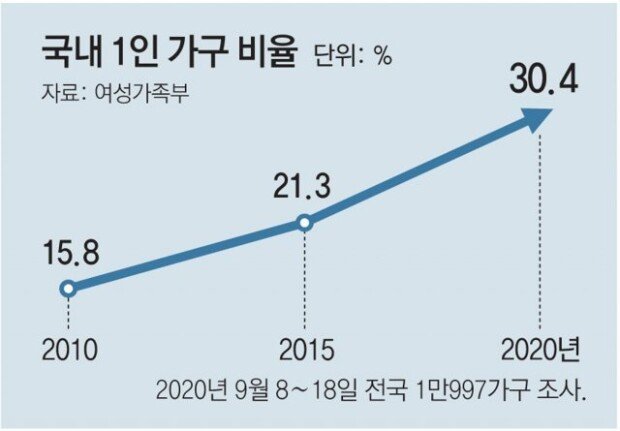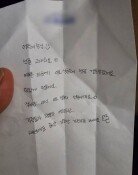Nearly one in 3 households is a single-person household
Nearly one in 3 households is a single-person household
Posted May. 31, 2021 07:21,
Updated May. 31, 2021 07:21

The number of single-person households is increasing fast. The ratio of one-person households increased nearly by 10 percentage points, which makes nearly one-third of South Korean households consists of a single person. Half of those in their 20s are positive towards “staying single rather than getting married,” which is why the ratio is projected to increase further.
According to the Ministry of Gender Equality and Family’s fourth research on family that surveyed 10,997 households in Korea published on Sunday, the ratio of single-person households increased to 30.4 percent last year. Considering that it accounted only for 21.3 percent in 2015, the group increased its portion by 9.1 percentage points in just five years. The ratio was 15.8 percent in the same survey in 2010, which means it doubled in 10 years and the pace of increase is becoming faster.
It also means the number of households composed of a married couple and children is decreasing by that much. The ratio of households composed of a married couple and unmarried children, which has been considered as the “standard family” in our society was 31.7 percent in 2020. It was 44.2 percent five years ago. It shrank almost to the same level as single-person households in just five years.
This led to a decrease in the number of family members per household. It decreased from 2.8 members in 2015 to 2.3 members in 2020. It is projected that the number of single-person households will exceed that of households composed of a married couple and their children in the fifth survey to be conducted in 2023. “The growing job instability and accelerating economic activities of women are rendering the previous form of family obsolete,” said professor Jeong Jae-hoon of social welfare at the Seoul Women’s University. “The welfare policy centering around family should be changed to a welfare system that revolves around individuals.”
easy@donga.com · image@donga.com







